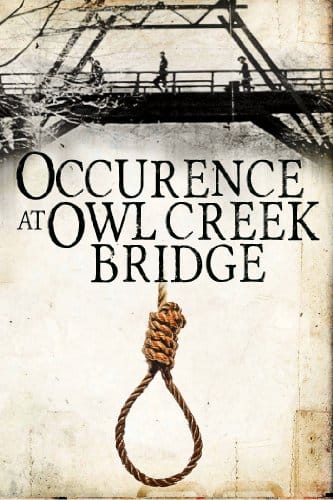
In An Occurrence at Owl Creek Bridge, the theme is evident. The story is about the peril of a man, Peyton Farquhar, a white farm owner in the South during the Civil War.
At the beginning of the story, he finds himself about to be hung and it explores how he got there and his dream of escape before he would be dangling at the end of the rope. In the story, the theme of the average southern land-owner gentleman being killed is symbolic of the death of southern slave culture in the story.
Although that is the main theme, a more subtle theme is the idea that sometimes trusting a stranger with great trust, no matter how they present, can land one in grave danger.
In part II of the short story, there is a description of who Peyton Farquhar is and why he found himself at the mercy of the north. It begins with explaining how Farquhar was dedicated to the cause of the South, and how although he wasn’t a soldier, still had his heart in the cause.
The story states, “No service was too humble for him to perform in the aid of the South, no adventure too perilous for him to undertake if consistent with the character of a civilian who was at heart a soldier, and who in good faith and without too much qualification assented to at least a part of the frankly villainous dictum that all is fair in love and war.” (3, Bierce).
This dedication sets him up for service to the South, even if his own life was at stake, much like a soldier. This adamant loyalty to the cause would be deadly, as the issue with such fidelity could lead one to do things that put themselves in imminent danger.
The soldier turns out not to be the confederate soldier that Farquhar thought, and this puts his idea to the knowledge of the opposing side. The soldier that Farquhar converses with in the second part of the story, however, doesn’t necessarily suggest to Farquhar that he should go and mess with the railroad, he informs Farquhar of the bridge and the consequences.
This mention led to questions from Farquhar about how one could go about going around the sentinels and burning the bridge, the soldier informed him of some possible kindling. However, Farquhar talking to the stranger about his ideas would lead the opposing side to know to catch and hang him when he arrives at the bridge.
The man is set up as a confederate soldier, “… a gray-clad soldier rode up to the gate and asked for a drink of water.”(3, Bierce). The gray uniform is a signature of the confederate soldiers, and was a mark that the man was trustworthy. However, it is later revealed that he is not who he is dressed as. This is shown when it is stated that, “An hour later, after nightfall, [the soldier] repassed the plantation, going northward in the direction from which he had come. He was a federal scout.” (4, Bierce).
This unspoken misinformation as the uniform did not match up to the man he truly was. This vital misunderstanding would lead to Farquhar’s conversation about how to burn the bridge would be shared with the soldiers at the bridge, and would lead to Farquhar being discovered. To the author, likely the symbolic death of the southern gentleman.
This is important because the spy was likely symbolic of Bierce’s view that the North was better than the South, and that the outsmarting of Farquhar would show how that the North is more clever than the men of the south. Because of that, the southern gentleman died, and thus the South was now at the mercy of the North and their ideals, that would mean that the northern idea that slavery was a crime would exterminate the way of life as the South knew it at that time
